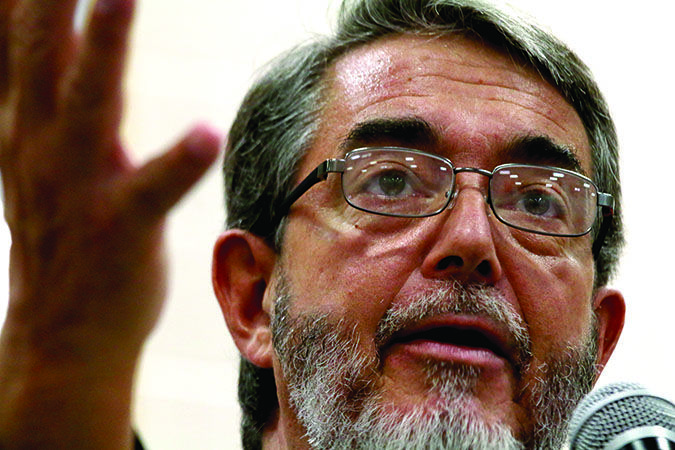LAKEWOOD — Scott Hahn, the internationally-known Bible scholar and best-selling author, confessed — before 400 gathered for the annual Archdiocese of Los Angeles Faith Formation Day for Faculty — that he was a shoplifter.
He was 14 years old when he was caught. Hahn explained he’d lied to get out of trouble. While he fooled the police and his mother, his father knew better.
“I felt horrible,” Hahn said in his closing talk about the sacrament of confession at St. Joseph High School.
Eventually, he owned up to the crime and his life hasn’t been the same. Hahn, who became a Protestant minister before converting to Catholicism, then began attending Bible study.
And, while he lost a lot of his old friends, he gained many new ones.
“God is more intent on forgiving us that we want him to be,” Hahn said. “He can do more for us that we can imagine.”
Later, while he and his wife were in graduate school, he remembered his shoplifting days in light of Leviticus 5:5-6: “When someone is guilty in regard to any of these matters, that person shall confess the wrong committed, and make reparation to the Lord for the wrong committed.”
He and his wife, studying for Presbyterian ministry, didn’t have a lot of money at the time. But they discerned that Hahn would pay back what he calculated the debt to be: $1,000.
It left them flat broke. Then someone — to this day the Hahns don’t know who — paid for their next two years of graduate school.
He was ordained as a Presbyterian minister in 1982 at Trinity Presbyterian Church in Fairfax, Virginia. Yet, as he studied the early Church fathers, a growing restlessness persisted.
“I had to go and find a Church that matched what I found in the Bible,” Hahn said. He described attending his first Mass, seeking out a priest and learning more about the faith.
After much soul searching and conversations with his wife, Hahn felt that delaying a conversion to Catholicism would be disobedient.
He was set to enter on Easter Vigil in 1986 when the topic he’d been avoiding came up: confession. Why not just confess your sins directly to God? Why go to a priest?
“It’s not the priest, it’s Christ who he represents,” the answer came.
Hahn prepared for his first confession, filling two notecards front and back, and spent two hours in the confessional. He received his penance, which Hahn described as meager given what he had done.
Hahn left the confessional a different man. He entered the Church and began making frequent use of the sacrament.
He described his wife, who was still Presbyterian, looking at him at dinner one evening. “What’s going on with you?” she asked. He had been grumpy, short with their children.
“Nothing, I’m fine.”
“When was the last time you went to confession?” his wife asked. It had been over a month.
“What? You’re a Protestant! Why are you asking me about confession?” Hahn replied.
“All I know is that you’re kinder and gentler after you go to confession,” she said. He looked at his boys and they were nodding.
Even before his family’s conversion to Catholicism, Hahn would host “days of jubilee” in which his children would own up to mistakes. Hahn’s response was to forgive them and tell them how much he loved them.
“Because the Hahn home is full of corruption,” he said, “but it’s full of mercy, too.”
Hahn told educators that confession was the most misunderstood of the sacraments. In his explanation, the Bible scholar went back to the creation account in Genesis. The first breath a human being took was the very breath of God, not oxygen.
“By nature we are servants and by grace we are adopted by God,” he said. “It’s not what we’re saved from but what we are saved for — to participate in the divine sonship of Jesus. That is salvation and that is why the Catholic Church is here.”
Andre Nicdao, an English teacher at St. Pius X-St. Matthias Academy in Downey, said he’s listened to many of Hahn’s talks in the past.
“What inspires me is that he’s a lay person and a father, like myself,” he said. “He spoke about how we live. I see that role as a teacher, to be a spiritual father.”
Curtis Hartman, who teaches art history, psychology and politics at St. John Bosco, said Hahn’s reflections could help in class discussions.
“It can get so esoteric,” he said of theology. “It’s nice to ground it in the familial, in a way for our students to sink their teeth into.”
Msgr. Sal Pilato, superintendent of Catholic High Schools, said the faith formation days are an initiative of the California Catholic bishops. The program, which aims at ongoing faith formation for faculty, was developed with a four year cycle and reflects themes in the Catechism of the Catholic Church.
“Ongoing formation is a recognition that constant conversion is a part of our life,” said Msgr. Pilato.
Hahn spoke at St. John’s Seminary and on Oct. 28, he spoke to a packed house of mostly young adults at St. Therese. They mobbed him afterward, lining up to take selfies with the author while he asked them for prayers.
“He spoke to us as one Catholic to another,” said Margarett Hernandez, who teaches English at St. Joseph, noting that she related to his examples. “He didn’t talk over our heads.”
Hahn spoke to faculty gathered at schools throughout the archdiocese, including Bishop Alemany, Bishop Diego Garcia, Bishop Amat and St. Mary’s Academy. He taught high school for five years, an experience he called formative to his speaking and writing.
“All my theology is filtered through my teaching,” he said. “You don’t learn it until you teach it. And you don’t really learn it until you teach it to high school kids. It forces you to teach it well.”

